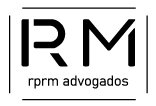Best Marine Insurance Lawyers in Porto
Share your needs with us, get contacted by law firms.
Free. Takes 2 min.
List of the best lawyers in Porto, Portugal
About Marine Insurance Law in Porto, Portugal
Marine insurance is a specialized branch of insurance law that covers loss or damage of ships, cargo, terminals, and any transport or cargo by which property is transferred, acquired, or held between points of origin and destination. In Porto, Portugal - a vibrant port city with a rich maritime heritage - marine insurance plays an essential role in protecting both commercial interests and private parties involved in shipping and logistics. The law governing marine insurance in Porto falls under national Portuguese regulations, as well as specific international conventions and local port regulations that reflect the city’s prominence as a shipping hub.
Why You May Need a Lawyer
Navigating marine insurance matters can be complex, especially given the intersection of domestic and international regulations. There are several common situations in which individuals or businesses may require legal assistance:
- Disputes over insurance claim denials or settlement amounts due to cargo loss or damage
- Liability issues after marine accidents, such as collisions or pollution events
- Understanding contractual provisions and obligations within shipping and insurance documents
- Subrogation actions, where insurers seek to recover costs from liable third parties
- Advice on compliance with Portuguese and European Union regulations for marine transport and insurance
- Complexities arising from multi-jurisdictional shipping arrangements involving foreign parties
- Legal representation during arbitration or court proceedings related to marine insurance
A lawyer experienced in marine insurance law can provide critical guidance, help avoid costly mistakes, and ensure you receive fair compensation or uphold your legal obligations.
Local Laws Overview
Marine insurance in Porto is regulated primarily by the Portuguese Insurance Law (Lei do Contrato de Seguro), complemented by international conventions like the Hague-Visby Rules that Portugal has ratified. Key aspects of local law include:
- Portuguese law requires marine insurance contracts to clearly define the insured risks, perils, and coverage limits.
- Insurable interest: Only those with a legal interest in the insured property (ship, cargo, freight) can take out a policy.
- Duty of disclosure: Policyholders must fully and honestly disclose all relevant facts at the time of contracting insurance.
- Claims process: Strict time limits apply for reporting losses to insurers, and documentation is crucial.
- Subrogation: Once an insurer pays a loss, it may assume the right to pursue third parties responsible for damage or loss.
- Arbitration: Disputes can often be resolved through arbitration clauses, commonly found in marine insurance contracts.
- The regulatory authority overseeing insurance providers is the Autoridade de Supervisão de Seguros e Fundos de Pensões (ASF).
These regulations are applied alongside general contract and commercial law principles, requiring a nuanced interpretation in specific cases.
Frequently Asked Questions
What does marine insurance typically cover in Portugal?
Marine insurance policies generally cover physical damage or loss to ships (hull insurance), cargo, and freight. Additional coverage may include collision liability, salvage costs, and general average contributions.
Is marine insurance mandatory for all shipments in and out of Porto?
Marine insurance is not universally mandatory, but it is highly recommended for all commercial shipments. Certain contracts or legal requirements may obligate parties to carry insurance for specific types of cargo or routes.
How do I make a claim after cargo damage in Porto?
Contact your insurer immediately, document the damage with photos and reports, notify local port authorities if required, and submit all required paperwork as outlined in your policy. Prompt action is critical due to strict reporting timelines.
What if my claim is denied by the insurance company?
If your claim is denied, you can request a formal explanation from your insurer, review your policy terms, and seek legal advice to evaluate whether the denial is justified. Disputes can sometimes be resolved through negotiation or arbitration before resorting to court.
Are there time limits for making marine insurance claims in Porto?
Yes. Portuguese law and standard policy terms set specific time limits for notifying insurers of losses and filing claims. These can be as short as a few days for initial notice, and a longer period for documentation. Check your policy for exact deadlines.
Who regulates marine insurance companies in Porto?
In Portugal, including Porto, the regulatory authority is the Autoridade de Supervisão de Seguros e Fundos de Pensões (ASF), which oversees all insurance companies operating in the country.
Can foreign vessels or cargo owners obtain marine insurance in Porto?
Yes. Both domestic and foreign parties can purchase marine insurance in Porto, either through Portuguese insurers or international firms authorized to operate in Portugal.
What legal recourse is available if an insurer acts in bad faith?
Policyholders who believe their insurer has acted in bad faith can file complaints with the ASF, seek mediation, or initiate legal action for breach of contract or damages, depending on the circumstances.
What is “general average” and how does it impact marine insurance?
General average is a principle where all parties in a sea venture proportionately share any losses resulting from voluntary sacrifices made to save the vessel or cargo. Marine insurance policies in Portugal usually cover general average contributions.
Should I consult a lawyer before signing a marine insurance policy?
It is advisable to consult a lawyer, especially for high-value shipments or complex contracts. A legal expert can help you understand policy terms, exclusions, and ensure your interests are protected.
Additional Resources
Individuals seeking further information or help regarding marine insurance in Porto may find the following resources helpful:
- Autoridade de Supervisão de Seguros e Fundos de Pensões (ASF) - The national regulator responsible for supervising insurance activity in Portugal.
- Porto’s Port Authority (Administração dos Portos do Douro, Leixões e Viana do Castelo - APDL) - Offers guidance and regulations related to port operations.
- The Portuguese Chamber of Commerce and Industry - Provides information on maritime commerce and insurance practices.
- Local maritime law firms - Specialized legal advice and support for insurance disputes and claims.
Next Steps
If you require legal assistance with a marine insurance matter in Porto, consider taking the following steps:
- Gather all relevant documentation: This includes your insurance policy, correspondence, claim paperwork, and photographic evidence of any loss or damage.
- Contact your insurer: Notify them of any incident as soon as possible and follow their claims procedures.
- Consult a qualified lawyer: Seek out a local lawyer with experience in marine insurance law to evaluate your situation and advise you on your rights and obligations.
- Explore mediation or arbitration: Many marine insurance contracts include alternative dispute resolution clauses to settle disagreements efficiently.
- Contact regulatory authorities: If you suspect misconduct or need regulatory intervention, approach the ASF or other relevant bodies as needed.
Taking prompt and informed action can help protect your interests and secure the best possible outcome in any marine insurance issue within Porto, Portugal.
Lawzana helps you find the best lawyers and law firms in Porto through a curated and pre-screened list of qualified legal professionals. Our platform offers rankings and detailed profiles of attorneys and law firms, allowing you to compare based on practice areas, including Marine Insurance, experience, and client feedback.
Each profile includes a description of the firm's areas of practice, client reviews, team members and partners, year of establishment, spoken languages, office locations, contact information, social media presence, and any published articles or resources. Most firms on our platform speak English and are experienced in both local and international legal matters.
Get a quote from top-rated law firms in Porto, Portugal — quickly, securely, and without unnecessary hassle.
Disclaimer:
The information provided on this page is for general informational purposes only and does not constitute legal advice. While we strive to ensure the accuracy and relevance of the content, legal information may change over time, and interpretations of the law can vary. You should always consult with a qualified legal professional for advice specific to your situation.
We disclaim all liability for actions taken or not taken based on the content of this page. If you believe any information is incorrect or outdated, please contact us, and we will review and update it where appropriate.









